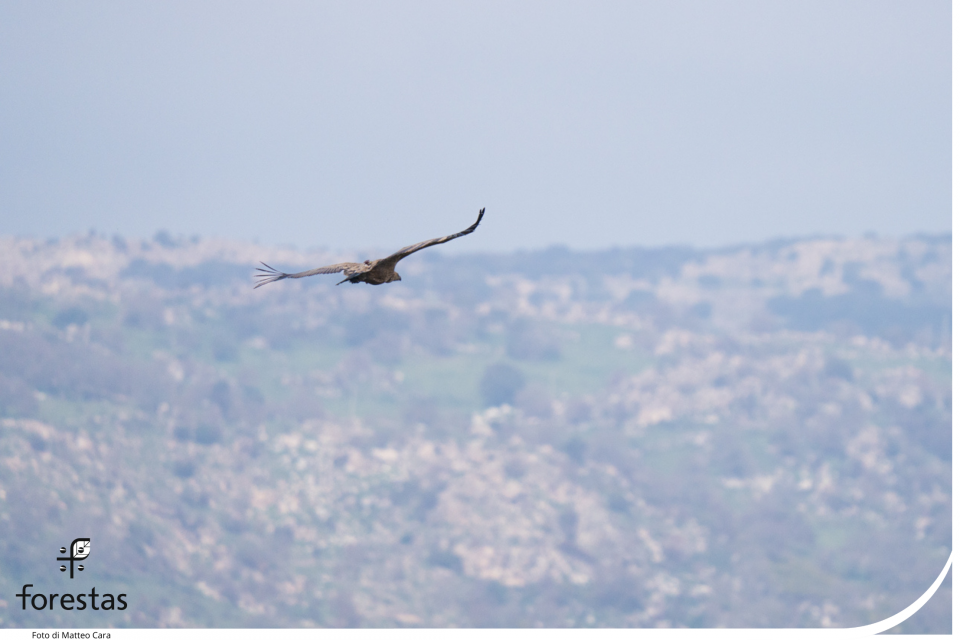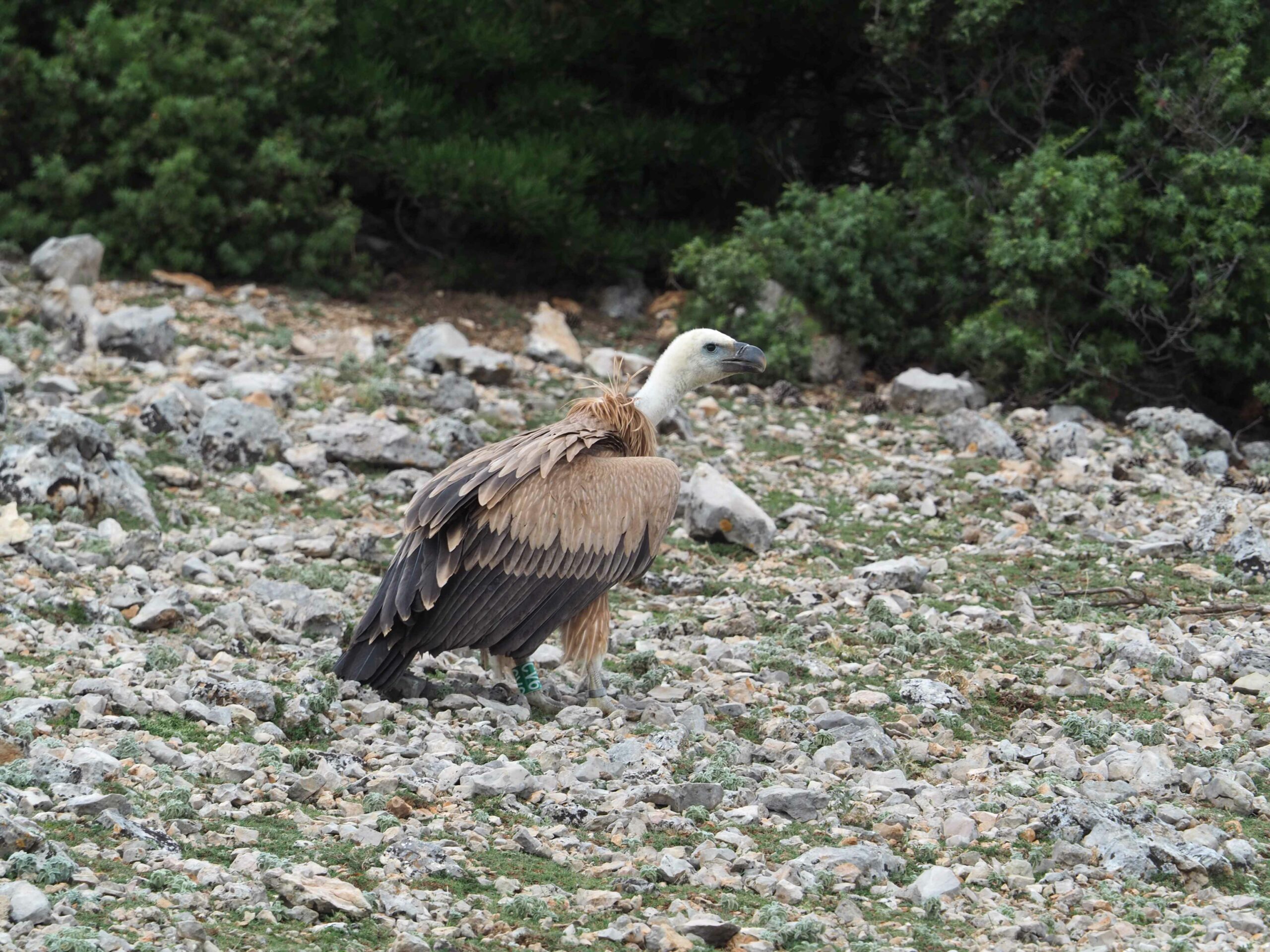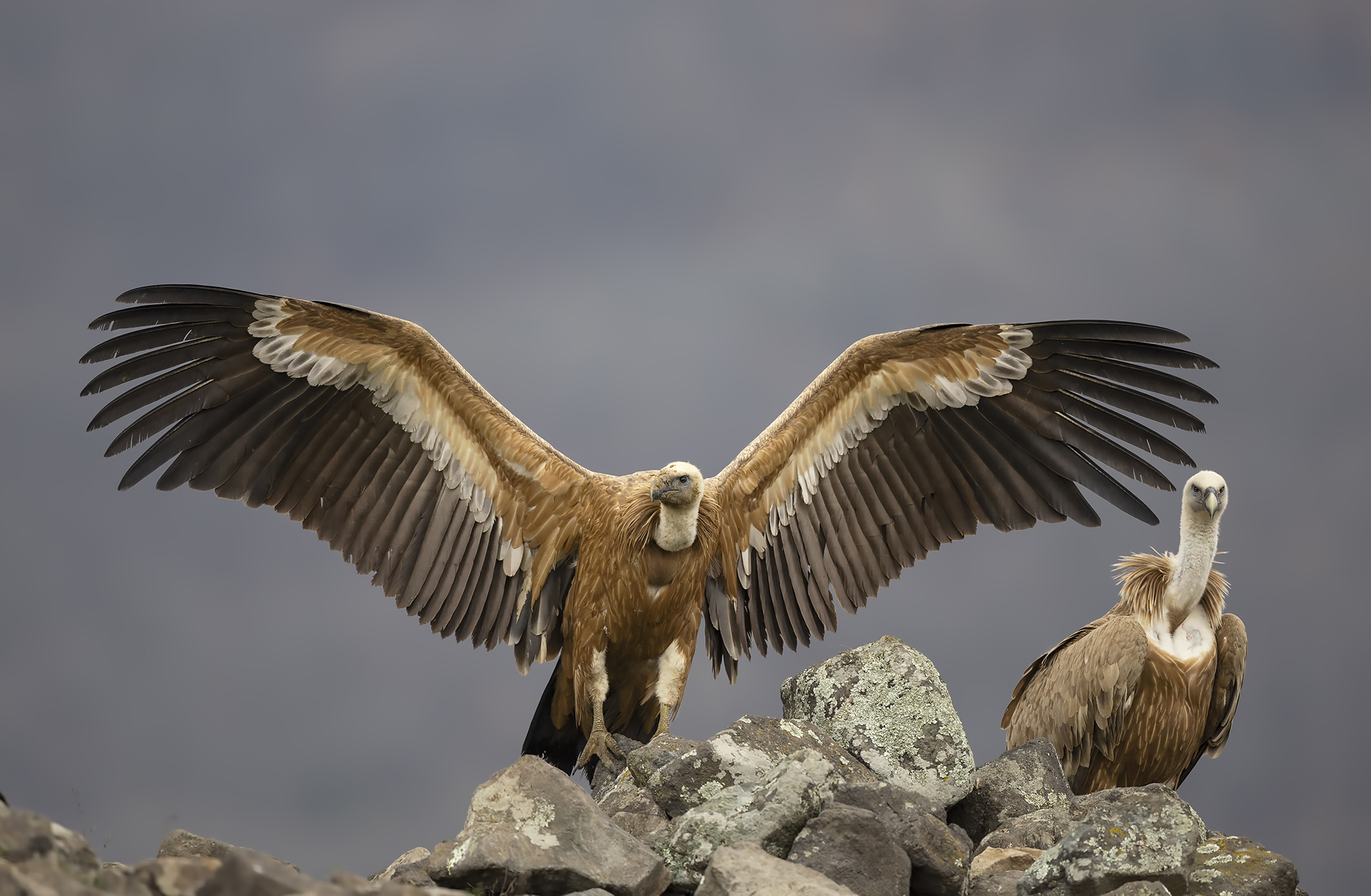
In January 2020, an illegal wildlife poisoning incident has resulted in the death of several wild and domestic animals in Croatia. The competent authorities and organisations carried out a thorough investigation, and thanks to their efforts, justice might be served as for the first time in the country, a case relating to wildlife poisoning has reached court trial.
Investigation of the poisoning incident in January
Local hunters in the area of Mazin in Lika region in Croatia found the carcasses of wolves and foxes, which died from feeding on two dead calves placed as poison baits in mid-January. Following this finding, our partners at Association BIOM together with the local hunting society, the Inspectorate for nature conservation, the police and members of the Ministry of Environmental Protection and Energy surveyed Mazin in Lika for signs of poisoning. The scene was characteristic of deliberate poisoning of wild animals. Two calf carcasses were left as bait, with unusual stab wounds, which were presumed to have been used to insert venom. The ears of the calves were cut off, which was obviously done to remove the mark, revealing the identity of the cattle’s owner. In the immediate vicinity, the inspectors found dead wolves and foxes, with signs of diarrhoea and vomiting, making it clear that they died from poisoning in severe torment.

Two weeks after the first findings, authorities discovered more poisoning victims. They found the carcass of a Golden eagle, which is a strictly protected species since there are only 25 to 30 pairs in Croatia. The search team also discovered crystals of Carbofuran poison and a dead cow only 20 metres away from the eagle and suspected that a local herder did this targeting wolves. The use of poison to kill livestock predators has been banned in all European countries since the 1980s, but alarmingly, it is still used in Croatia and other European countries.
Poisoning case reaches court trial in Croatia
Half a year later, on Thursday 16 July, the poisoning case reached court trials following the successful investigation by the authorities and relevant stakeholders. Our partners from Croatia, Association BIOM, informed us about the successful ending of a police investigation and official criminal charges initiated against a 52 years old individual. According to police, livestock owner used poisonous substances and by doing that engaged in crimes related to illegal hunting and to the destruction of protected natural values. Although there is no Wildlife Crime Unit in Croatia, this poisoning event was handled in cooperation between the State Inspectorate, Ministry of Environment, Veterinary faculty, Croatian Veterinary Institute and the Forensic centre Ivan Vučetić. Many individuals gathered around unofficial National Anti-poisoning Working Group, originally established under the Balkan Anti-Poisoning Project project in 2018, contributed to the investigation.
The case is now at the State’s Attorney Office of the Republic of Croatia. Biom and VCF will continue to monitor further developments at the court with hope this case will result with Croatia’s first verdict against wildlife poisoners.
Illegal wildlife poisoning in Croatia
Poisoning has been banned in all European countries since the 1980’s to protect animals, nature and humans. Unfortunately, it is still used in Croatia as a seemingly ‘quick and inexpensive solution’ for resolving human-wildlife conflicts (mostly wolves and eagles), and stray dogs or feral pigs in Croatia. Due to poor law enforcement and the easy procurement of toxic substances, this dangerous practice continues to be widespread in the country. To date, the most commonly used poisons in Croatia are Carbofuran and Methomyl. Even the smallest amount of Carbofuran can kill people who come in contact with it and has long been banned in the EU.
The most common way of poisoning animals in Croatia is the illegal placement of poison baits. Wild and domestic animals, and in the worst cases, humans, are regularly harmed by such poisoning attempts.
Two vulture species became extinct in Croatia because of the practice of illegal wildlife poisoning – the Cinereous and Egyptian Vulture. Years of deliberate poisoning of wolves, bears, eagles and dogs resulted in the extinction of these two vulture species in Croatia. Today, the Griffon Vulture is the only species of vultures that still breeds in the country in the small isolated populations on Cres and Kvarner islands.
Illegal poisoning is the most critical threat to vultures in the Balkans and is preventing their comeback in the region. One of the ways we here at the Vulture Conservation Foundation are tackling this issue is through the implementation of the Balkan Anti-Poisoning Project. Within the project with funding from the MAVA Foundation we are implementing the Balkan Anti-Poisoning Project Small Grants Programme to support other non-governmental organisations working on vulture conservation in the Balkan Peninsula and to facilitate the fight against poisoning in the region, including Association BIOM in Croatia who responded to the poisoning incident in January.
The Balkan Anti-Poisoning Project Small Grants Programme
The Balkan Anti-Poisoning Project Small Grants Programme is the first time we at the Vulture Conservation Foundation have run a grant programme, and with this we aim to reinforce national capacities within relevant governmental authorities and conservation NGOs from six countries (Albania, Bosnia and Herzegovina, Croatia, Greece, North Macedonia and Serbia) of the Balkan Peninsula. This work will support those organisations to improve the skills and capabilities in the detection and mitigation of poisoning incidents through the implementation of previously developed National Roadmaps and Strategies. More specifically, through these small grants we endeavor to secure the implementation of priority anti-poisoning actions listed in the National Anti-Poisoning Road-maps/Strategies, strengthen the capacities of relevant national governmental institutions in combating the illegal use of poison baits, improve the enforcement of relevant legislation and attract other funding opportunities for implementation of large-scale anti-poisoning projects in the region. Through the support of the MAVA Foundation, we managed to dedicate a budget of €60.000 for these small grants.
Balkan Anti-Poisoning Project

The Balkan Anti-Poisoning Project is a cross-border initiative bringing together wildlife conservation organisations, governmental agencies and other stakeholder such as; hunting associations, farmers and scientists, in six Balkan countries to tackle illegal wildlife poisoning.
Funded by the Mava Foundation we aim to secure real and continued engagement of the relevant national governmental authorities in the Balkan region against illegal wildlife poisoning and increase their capacity to counteract it and working together to take positive steps to protect vultures.
The Balkan Anti-Poisoning Project is a partnership between us here at the Vulture Conservation Foundation and the Albanian Ornithological Society-AOS, Protection and Preservation of Natural Environment in Albania-PPNEA, Ornithological Society “Naše ptice”,Association BIOM, Hellenic Ornithological Society-HOS, Macedonian Ecological Society-MES and Društvo za zaštitu i proučavanje ptica Srbije.
The Balkan Anti-Poisoning Project also contributes directly into the implementation of the Vulture Multi-Species Action Plan by carrying out anti-poisoning actions in Albania, Bosnia and Herzegovina, Croatia, Greece, North Macedonia and Serbia, and is building on our work for the last decade in the Balkans through the Balkan Vulture Action Plan.




